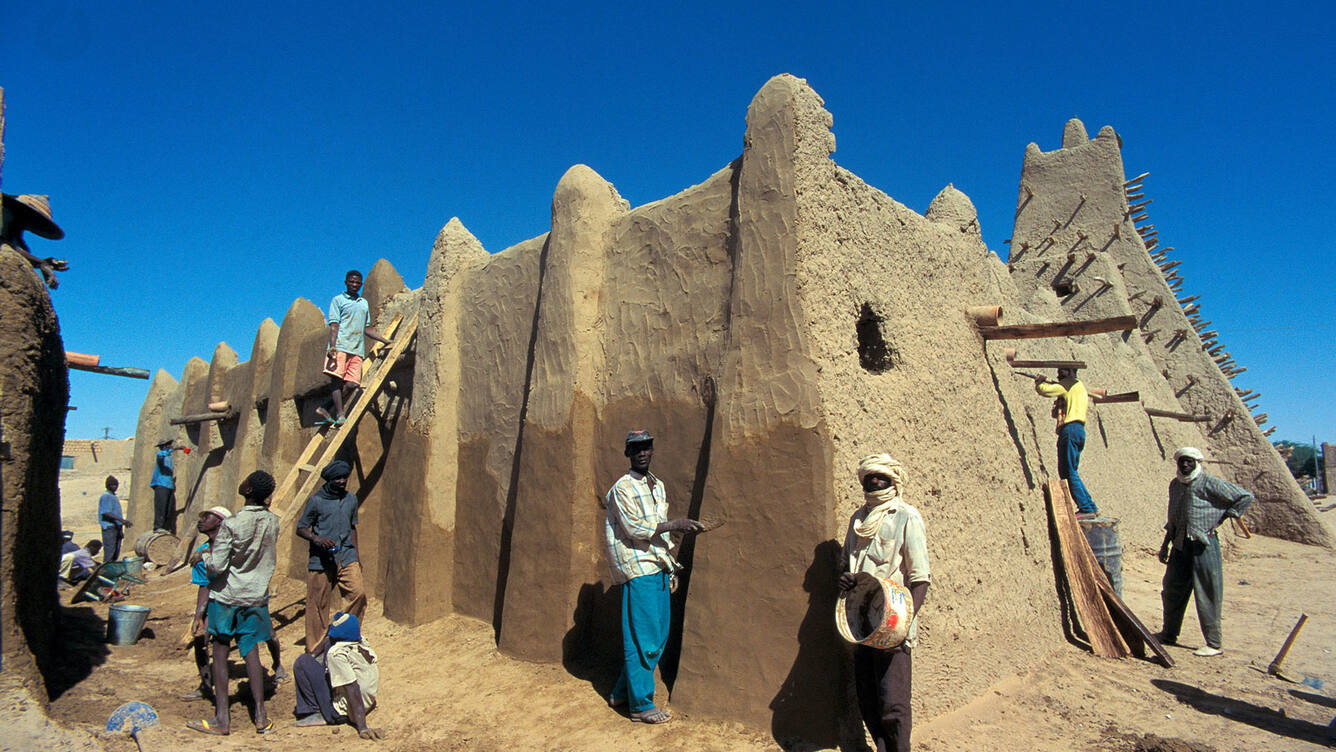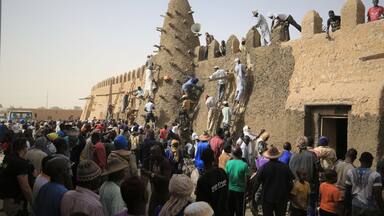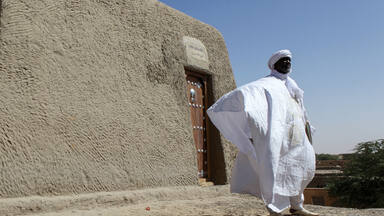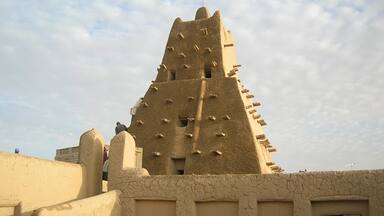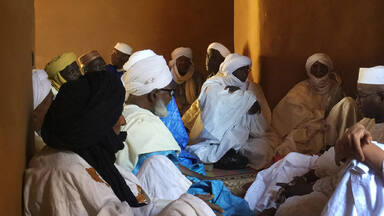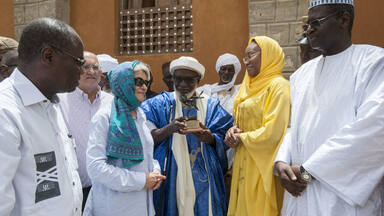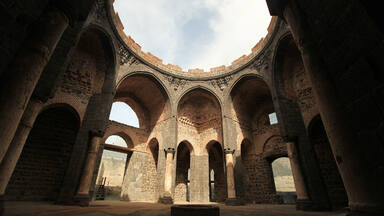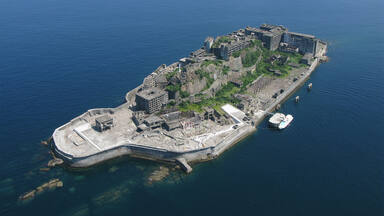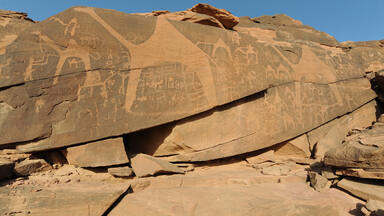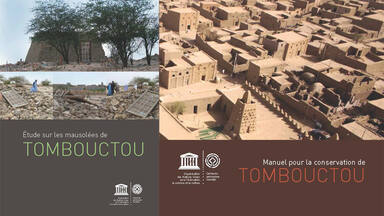Reconstruction of Timbuktu mausoleums nears completion
Three years after their destruction by extremists, the Timbuktu mausoleums are nearly restored through the extraordinary work carried out by local craftsmen and with international support. The announcement came at an event held in Bonn as part of the World Heritage Committee session taking place in the German city.
“The reconstruction of the mausoleums in Timbuktu is a fine example of the successful implementation of the decisions of the World Heritage Committee. Since the site was inscribed on the List of World Heritage in Danger in 2012, the World Heritage Committee has been working on this case,” said Maria Böhmer, Chair of the World Heritage Committee at the event. “We are deeply impressed by what has been achieved regarding the safeguarding of this incomparable World Heritage property. At a time when heritage is coming under attack by armed groups, the reconstruction of the mausoleums of Timbuktu gives us grounds for optimism.”
“Timbuktu is the symbol of a country that is recovering and regaining its self-confidence. It is the best answer we can give to violent extremists and a remarkable success story for the international community,”
Mali’s Minister of Culture, Handicraft and Tourism Ramatoulaye Diallo N'Diaye praised the work of the masons of Timbuktu and also spoke to the plight of heritage in conflict areas. “The heritage community has experienced and is still experiencing great difficulties. The nature of certain ideological wars has turned World Heritage and the vestiges of the past into choice targets to shock public opinion and take their would-be armed combat on to the media,” he said.
During the event, Ms Böhmer presented a UNESCO medal on behalf of the Organization’s Director-General, Irina Bokova, to Alassane Hasseye, head of the guild of Timbuktu masons, custodians of unique traditional know-how in the maintenance of earthen architecture. It was presented to him in recognition of work carried out by his guild.
The mausoleums of Timbuktu have long been places of pilgrimage for the people of Mali and neighbouring countries. They were widely believed to protect the city from danger. The oldest of these edifices were built in the 13th century. Sixteen of them are inscribed on the World Heritage List and 14 were destroyed in 2012, representing a tragic loss for local communities. Due to this, the government of Mali in 2013 turned to outside partners, including UNESCO, for assistance.
Also present at the event were Mbaranga Gasarabwe, Deputy Special Representative of the United Nations Multidimensional Integrated Stabilization Mission in Mali (MINUSMA), Jean-Frédéric Jauslin, the Permanent Delegate of Switzerland to UNESCO; Mame Fatim Gueye, Permanent Delegate of Senegal to UNESCO; and Oumar Keita, Permanent Delegate of Mali to UNESCO.
